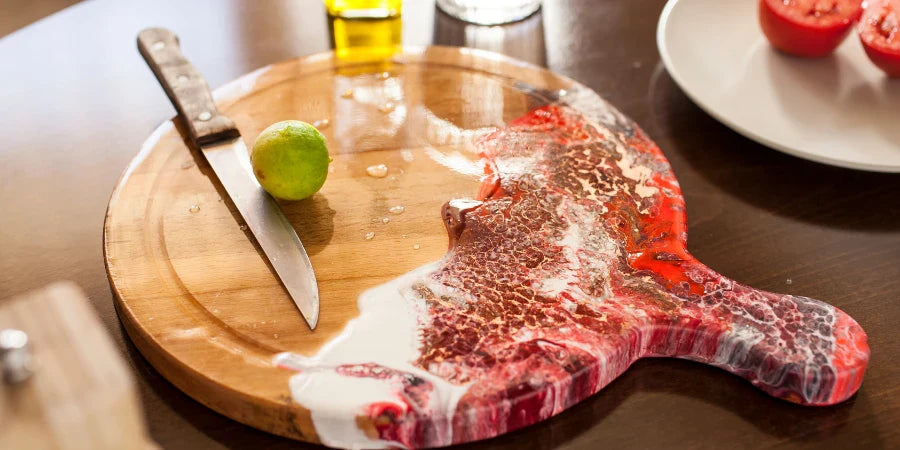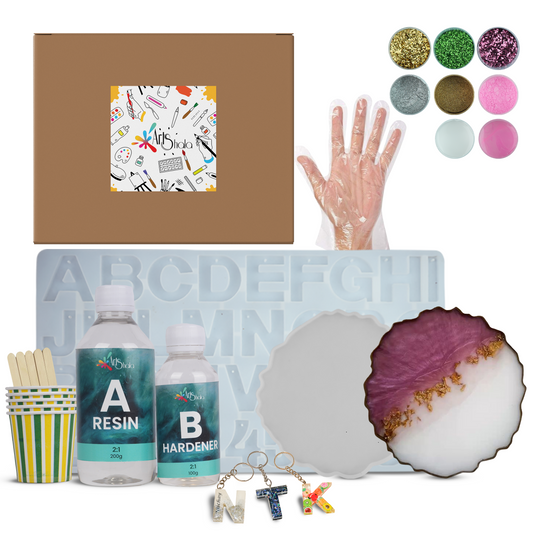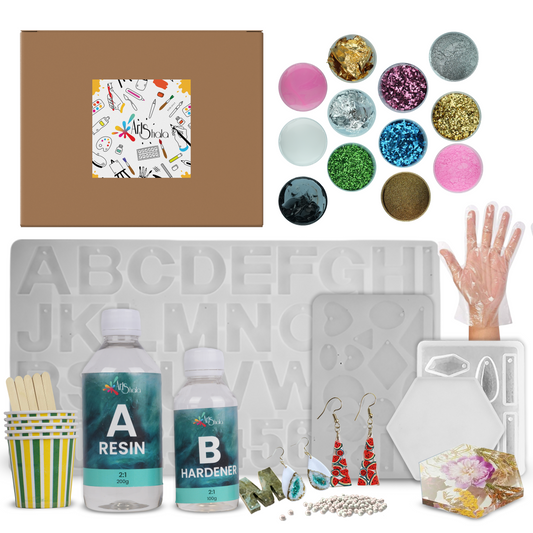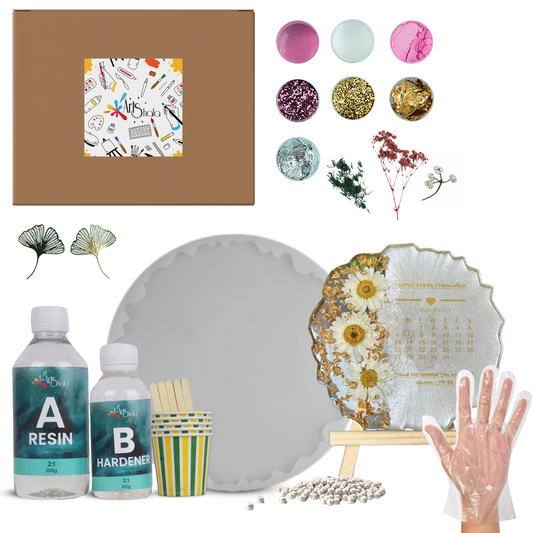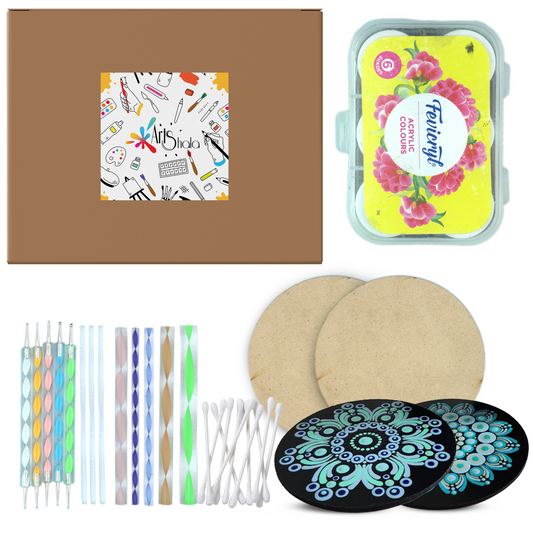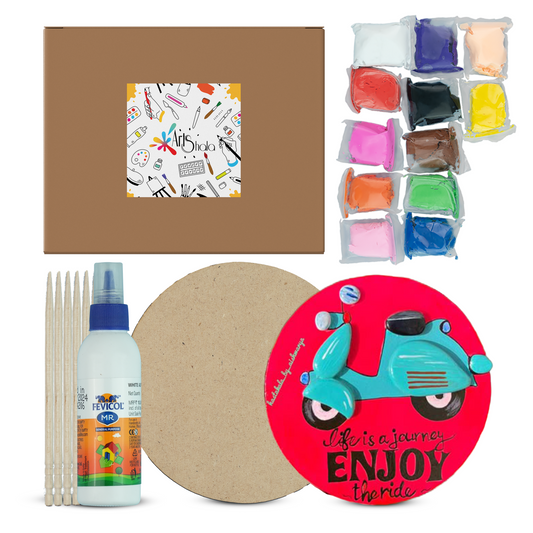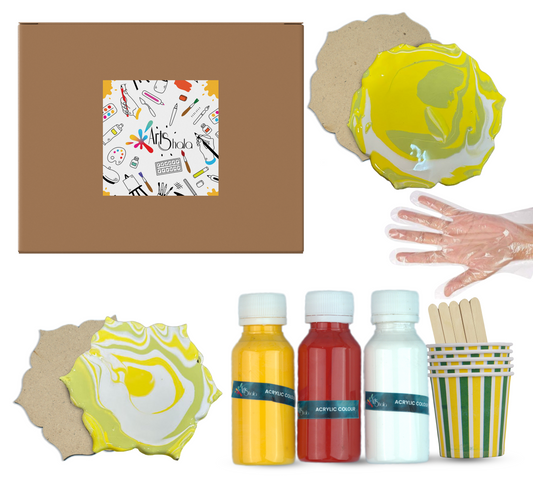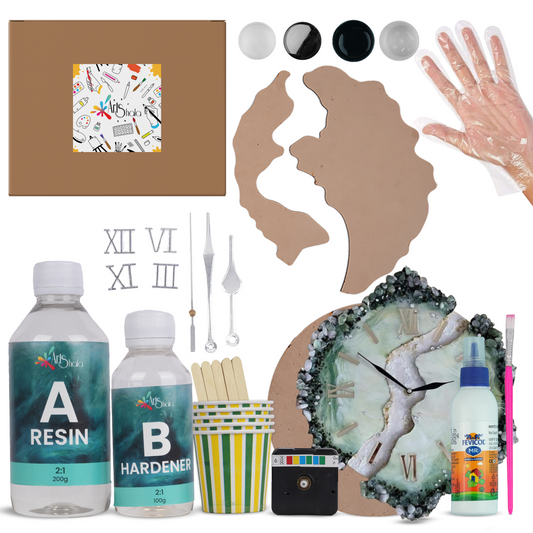Is Epoxy Resin Food Safe? Here's What You Need to Know
Epoxy resin is a versatile and long-lasting material commonly used in various applications, from crafting and construction to industrial settings. Its ability to create a glossy and hard finish makes it a popular choice for coating surfaces, crafting jewellery, and creating stunning artwork. If you're interested in exploring food-safe resin art, consider joining a resin art workshop to gain hands-on experience, express your creativity, and ensure safety in food-contact applications.
In recent years, epoxy resin has gained traction in food-related uses, such as coating kitchen countertops, creating serving trays, and crafting food-safe art pieces. The seamless finish and customisable designs make it an attractive option for culinary enthusiasts looking to elevate their dining experiences.
Consumers often have concerns about the safety of epoxy resin for food-related purposes. It is essential to understand the factors that leads to its safety and how to make informed choices when using it with food items.
Is Epoxy Resin Regulated for Food Safety?
Having regulations to ensure the use of safe materials in food-related applications is crucial. Different parts of the world have established specific food safety regulations governing epoxy resin:
- United States: The FDA (Food and Drug Administration) has set standards for epoxy resin's use in food contact materials under 21 CFR 175.300. This regulation ensures that the epoxy resin used in food-related applications does not pose a risk to human health.
- Europe: The Food Contact Plastics Regulations EU 10/2011 provides guidelines and limits on substances migrating from packaging materials into food, including epoxy resin used in food-contact applications.
Safety Certifications and Standards
Reputable epoxy resins may comply with these safety certifications or standards to ensure their suitability for food contact purposes. Compliance with such regulations gives consumers confidence that their epoxy resin has undergone testing and meets specific safety requirements.
Importance of Independent Lab Testing
In addition to these specific regulations, independent lab testing can also be conducted to verify the safety of epoxy resin products for culinary use. These tests assess leaching potential, chemical composition, and compatibility with food-contact applications. By adhering to regulatory standards and conducting rigorous testing, manufacturers can ensure that their epoxy resin products are safe for food-contact purposes.
Remember to choose an epoxy resin that complies with worldwide food safety regulations and has been evaluated by independent labs. This ensures that when used as directed and fully cured, the epoxy resin will not leach any potentially harmful chemicals into the food it comes into contact with.
The Evaluation Process for Food Safe Epoxy Resin
When using epoxy resin for culinary purposes, it's crucial to evaluate its food safety before using it in any food-related applications. This evaluation ensures the epoxy resin is safe and won't harm human health. Here are some recommended methods for testing the safety of epoxy resin:
1. Independent Lab Testing
Independent lab testing is one of the most reliable ways to assess the food safety of epoxy resin. These labs have specialised equipment and expertise to analyse the resin's composition and potential contaminants. They can provide valuable insights into whether the resin meets regulatory standards and is suitable for food use.
2. Adherence to Regulatory Requirements
Reputable epoxy resins should comply with specific regulatory requirements set by organisations such as the FDA (Food and Drug Administration) in the United States or the EU (European Union) regulations. These regulations outline the permissible limits of certain substances in materials intended for food contact. Epoxy resin manufacturers demonstrate their commitment to producing safe products by adhering to these requirements.
By following these evaluation processes, users can have confidence in the safety of epoxy resin products intended for culinary use. This ensures that they use a reliable product that meets recognised standards for food contact applications.
Remember, ensuring food safety is essential when working with epoxy resin, especially for items like charcuterie boards, serving trays, fruit bowls, countertops, or tableware that come into direct contact with food. Taking these precautions helps protect both your health and the integrity of your culinary creations.
Curing, Leaching, and Their Implications on Food Safety
Epoxy resin undergoes a curing process crucial for ensuring its stability and non-toxicity when used for food-related applications. Understanding the curing process is vital in evaluating the safety of epoxy resin for culinary purposes.
1. Curing Process
Curing involves a chemical reaction between the epoxy resin and a hardener. This reaction forms strong cross-linked bonds, transforming the liquid resin into a solid, durable material. Proper curing ensures that the epoxy resin reaches its full strength and stability.
2. Stability
Fully cured epoxy resin is an inert material, meaning it does not undergo any further chemical reactions or release harmful substances. It provides a safe and stable surface for food contact without leaching any chemicals into the food.
3. Leaching Concerns
Uncured or improperly cured epoxy resin may pose potential risks of leaching harmful chemicals into food. Any residual unreacted components in the epoxy resin can be released during the curing process. These components could migrate into food if direct contact occurs before the resin matures. To address these concerns:
- Following the manufacturer's instructions regarding curing time and conditions is essential. This ensures that the epoxy resin cures completely, minimising any potential risk of leaching.
- Avoid using uncured epoxy resin for food-related applications. Wait until it has fully cured before coming into contact with food.
- Be mindful of temperature sensitivity during the curing process. Higher temperatures can accelerate curing but may also increase the potential for leaching if not properly controlled.
By understanding how proper curing affects the safety of epoxy resin, users can ensure that their food-related projects are free from any potential risks associated with uncured or improperly cured resins.
Ensuring Food Safety Through Testing and Certification
When it comes to ensuring the food safety of epoxy resin, rigorous testing and certification programs play a crucial role. These processes help verify that the resin products meet the required standards and are suitable for food contact applications. Some of these tests include:
- Migration Testing: This test evaluates whether harmful components from the resin migrate into food when they come into contact with it.
- Certification Compliance: Ensuring their epoxy resin complies with worldwide food-safe regulations, such as the FDA 21 CFR 175.300 in the United States or the Food Contact Plastics Regulations EU 10/2011 in Europe. These certifications provide an additional layer of proof regarding the resin's safety for culinary purposes.
Conclusion
Based on current knowledge and regulatory standards, epoxy resin is generally considered safe for food contact when used and cured properly. It is important to prioritise your epoxy resin products' quality and food safety aspects. Educating yourself on best practices for working with this versatile material will help ensure a safe experience. Remember, food-safe epoxy resin should only be used after it is fully cured. Look for epoxy resin evaluated by an independent lab and complies with worldwide food-safe regulations.
If you're interested in learning more about resin arts and crafts, Contact Us on Arts Shala for workshops and courses where you can gain hands-on experience in creating food-safe resin art and explore the possibilities of this fascinating medium. Express your creativity with epoxy resin, knowing that it can be a safe and enjoyable material for your culinary creations when used correctly.

